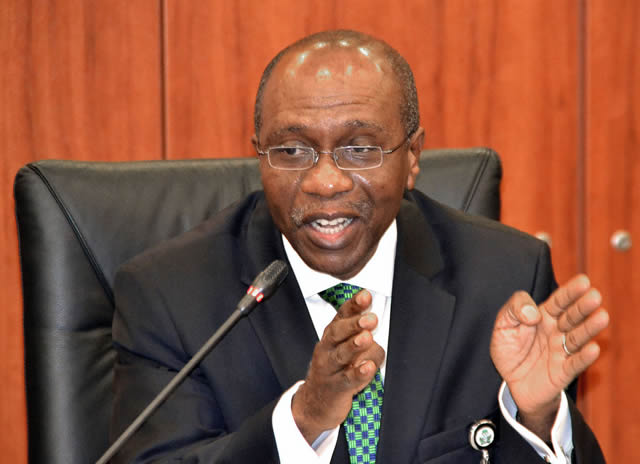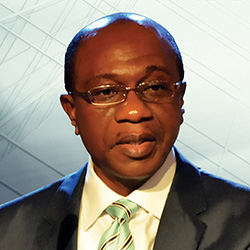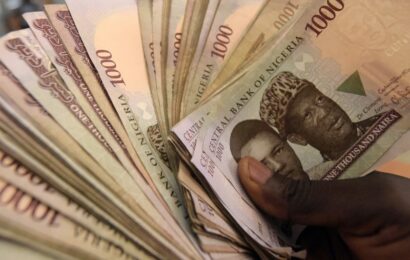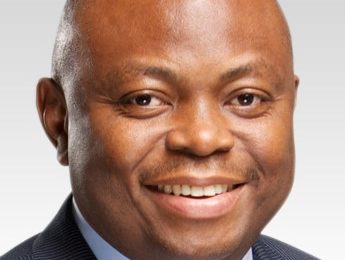The Monetary Policy Committee (MPC) has once again retained the Monetary Policy Rate at 14 per cent due to persistent uncertain economic conditions and high inflation.
The Central Bank of Nigeria (CBN) Governor, Mr Godwin Emefiele said this while briefing newsmen on outcome of the first MPC meeting for 2018 in Abuja on Wednesday.
He said the MPC members unanimously voted to retain the existing MPR and other monetary indices.
This means that the Cash Reserve Ratio still remains 22.5 per cent, Liquidity Ratio, 30 per cent, the Asymmetric corridor is at +200 and -500 basis points around the MPR.
“The Committee was of the view that further tightening would strengthen the impact of monetary policy on inflation with complimentary effects on capital flows and exchange rate stability.
“Nevertheless, it could potentially dampen the positive outlook for growth and financial stability.
“The committee was also of the view that loosening would strengthen the outlook for growth by stimulating aggregate demand through reduced cost of borrowing.
“However, this may lead to rise in consumer prices, generating exchange rate pressures on the currency in the process.
“The committee also believes that loosening will worsen the current foreign reserve account balance due to increase in importation.
“On the argument to hold, the committee believes that key variables have continued to evolve in line with the present stance of macroeconomic policy and should be allowed more time to fully manifest,’’ he said.
Emefiele said the committee observed with satisfaction, the continued rise in the external reserves but urged the CBN not to relent in building buffers against future price downturns.
“The committee noted the relative stability in the foreign exchange market. It observed with satisfaction the high level of activity at the exporters and importers window of the market.
“The window continues to attract more investors boosting foreign exchange supply. Consequently, total foreign exchange inflow through the CBN increased by 73 per cent in Feb. 2018 compared to the previous month.
“Total outflow also increased in Feb. 2018, by 15.69 per cent as a result of higher payment for invisibles, interbank transactions as well as joint venture cash calls payment,’’ he said.
Emefiele said that the economic outlook for 2018 remained positive but hinged on the early passage and execution of the 2018 budget.
He also said that the country’s economic growth was based on improved security, foreign exchange market stability as well as favourable crude oil prices.
“On the downside, the committee noted the potential impact of the 2019 elections related spending against the weak backdrop of tax revenue efforts and herdsmen related violence,’’ he said.
Emefiele said that the MPC members also expressed worry over the quantum of nonperforming loans and also the lending rate to customers in the banking sector.
“However, as government pays off its huge contractor debts, a sizable portion of this non performing loans will be addressed,
“We have been very clear about this, the size of contractor’s debt is N2.7 trillion.
“Because these debts are unpaid, the contractors are unable to service or pay back their loans at the banks.
“The CBN itself stands ready to accord some form of liquidity status to some of these debts and through that mechanism, we believe the NPL will recede.
“After that, commercial banks can now continue to play their role which is to catalyse growth and support credit delivery to the Nigerian economy,’’ he said.
Emefiele said that the Committee also urged the CBN to sustain its intervention in the economy by providing loans at single digit interest rate to key sectors of the economy.
The CBN governor also cautioned market analysts to be mindful on what they say in critiquing the decisions of the committee, being the first meeting of the newly appointed members.
“I want to state clearly that all the members appointed by President Buhari are duly qualified to take monetary policy decisions.
“The MPC members made up their minds to retain the rates not because they are new and it’s easier to do so.
“They unanimously agreed to retain the rates from an informed perspective thanks to data provided by the Monetary Policy Department of the CBN,’’ he said.







